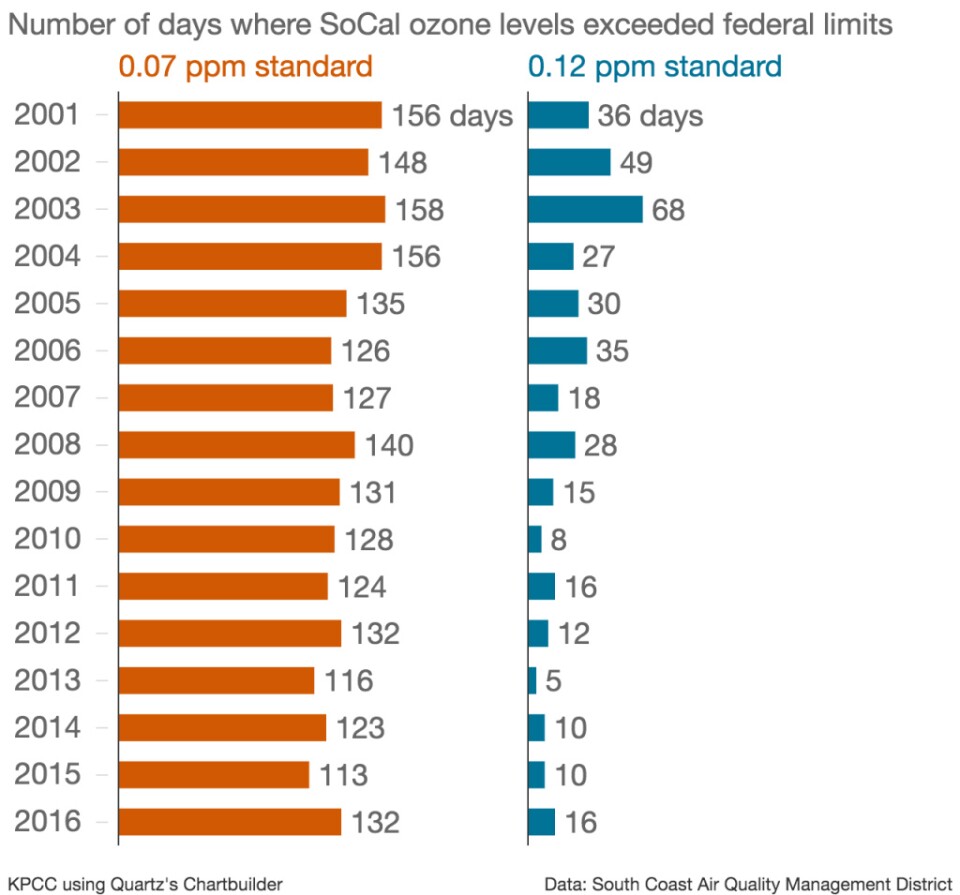This story is free to read because readers choose to support LAist. If you find value in independent local reporting, make a donation to power our newsroom today.
This archival content was originally written for and published on KPCC.org. Keep in mind that links and images may no longer work — and references may be outdated.
SoCal had worst smog season in 6 years
Hot, stagnant weather made the summer of 2016 Southern California's worst smog season in six years.
Smog, also known as “ozone," is a complicated pollutant: It’s formed when nitrogen oxide and volatile organic chemical emissions from cars, trucks, and natural sources like trees combine with sunlight and stagnant air.
If you’re thinking that sounds like Los Angeles in a nutshell, you’re right.
"There’s a variety of weather conditions that can favor the production of ozone in the atmosphere, and a lot of those are ones we tend to see pretty frequently in southern California, especially in the L.A. Basin," said UCLA climatologist Daniel Swain.
Light winds, inversions layers and high pressure systems keep pollutants from escaping. This past summer, those conditions were especially present in Southern California, according to Swain.

The other factor that can exacerbate ozone formation is increased emissions, but Phil Fine, deputy executive officer with the South Coast Air Quality Management District, said that wasn't a factor in this year's ozone spike. In fact, emissions have been decreasing in Southern California for over 20 years.
Still, air regulators have no control over the weather, which leaves them trying to reduce emissions from stationary sources like refineries, and from trucks and cars, which are the main sources of ozone-forming pollutants in Southern California. Heavy-duty trucks are particularly polluting, but the AQMD has limited authority to regulate them. The agency is currently petitioning the U.S. Environmental Protection Agency to create stricter emissions standards for truck engines.









